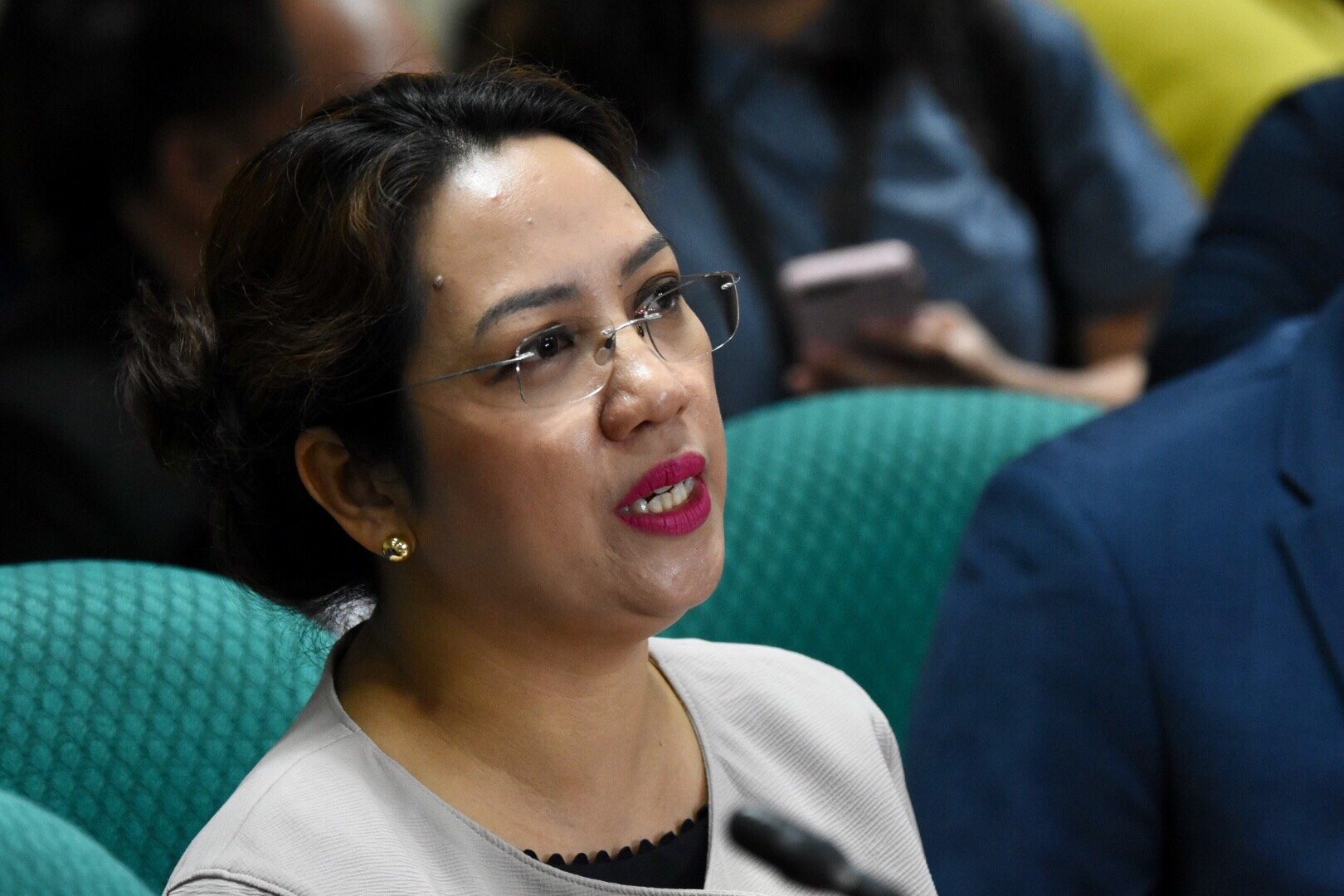SUMMARY
This is AI generated summarization, which may have errors. For context, always refer to the full article.

MANILA, Philippines (UPDATED) – Which group of experts should the Department of Health (DOH) chief believe in making key policy decisions?
The issue became a hot topic on Thursday, December 14, as the Senate continued its probe into the now-suspended government dengue vaccination program, which used Sanofi Pasteur’s Dengvaxia vaccine.
During the hearing, DOH secretary Janette Garin defended her decision to start vaccinating public school students in the National Capital Region, Central Luzon, and Calabarzon with Dengvaxia in April 2016.
Senate blue ribbon committee chairperson Richard Gordon pointed out in the hearing that the Formulary Executive Council (FEC) – a panel of top Filipino experts that identifies which medicines and drugs the government may use and procure – never recommended mass use of Dengvaxia.
“FEC, yes, they are experts in their own fields. But during that time, but even until now, in aid of legislation, your honor, tingnan po natin ang palagi pong paulit-ulit na conflict between FEC and the Department of Health. Dahil doon po sa batas nakasaad na dapat ang FEC pinapatawag ang departamento, ang mga internal and external experts,” said Garin.
(FEC, yes, they are experts in their own fields. But during that time, since this is an investigation in aid of legislation, let’s look at the longtime conflict between the FEC and the Department of Health. Because the law states the FEC must call for the department as well as internal and external experts.)
She said she had consulted other experts including DOH’s own program directors as well as Philippine Society for Microbiology and Infectious Diseases and Philippine Pediatric Society Incorporated, which advised her it would be safe to use Dengvaxia in the national immunization program.
“Ang tiningnan po namin, hindi lang po ‘yong proteksiyon na 65.5% (We checked not just the protection rate 65.5%), but what was very important for us was the 80.8% reduction in hospitalization and the 90.2% reduction in severity,” said Garin.
She said it “wasn’t true” that the vaccine’s safety and efficacy was being questioned, arguing that the Food and Drug Administration will not approve Dengvaxia’s sale in the country had it been otherwise.
But the FEC members were not sold on the safety, efficacy, and cost-effectiveness of Dengvaxia when they met on January 7 and 25, 2016, and on February 1, 2016.
Created by then President Fidel Ramos through Executive Order 49, the FEC is mandated to determine which drugs should be part of the National Formulary, a list of drugs that the government can buy and use.
Any drug not listed in the formulary cannot be purchased by the government.
The minutes of the FEC’s meetings showed they had discussed with various experts outside the panel, including representatives from the following:
- DOH’s Office for Health Regulations, Family Health Office, Disease Prevention and Control Bureau
- FDA’s Center for Drug Regulation Research
- Philippine Health Insurance Corporation
- University of the Philippines-Manila College of Pharmacy
“We would just like to say that in fact, what Secretary Garin has said that the formulary has not been cooperative or even adversarial is really not true. And I think it’s unfair to us because we had been able to call several experts, individual experts in their field, people in the DOH. The different bureaus will attest to the fact that they have been invited,” FEC member Dr Cecilia Lazarte told the Senate panel on Thursday.
“We had been able to very politely engage with them in many discussions before we do make recommendations to the secretary of health,” she added.
A budget was already being prepared to fund the vaccination program even before the FEC was called to meet last year. So in the end, the FEC recommended to the DOH an exemption for Dengvaxia for only a year, with certain conditions. Any purchases beyond that period were supposed to be subject to another study.
Under that one-year purchasing period, the FEC also recommended a “staged procurement” of the vaccine.
But because the FEC is merely a recommendatory body, the DOH chief may or may not follow its recommendation.
In the case of the dengue vaccination program, Garin launched it on a mass scale, contrary to the FEC’s recommendation.
After the hearing, Garin further said she did not ignore the FEC’s recommendation per se, but instead just gave more weight to the opinions of her program directors.
“Hindi naman po natin siya inignore. Sinasabay mo siyang dalawa. Meron ‘yong FEC, ito ‘yong kanilang mga rekomendasyon. Tatanunigin mo naman ‘yong program directors, kasi sila naman ‘yong nasa frontline eh. Sila ‘yong humaharap sa mga pasyente,” said Garin.
(We did not ignore them. We listened to both of them. There’s the recommendation of the FEC. Then you’ll ask the program directors, because they’re at the frontline. They are the ones who face the patients.) – Rappler.com
Add a comment
How does this make you feel?
There are no comments yet. Add your comment to start the conversation.